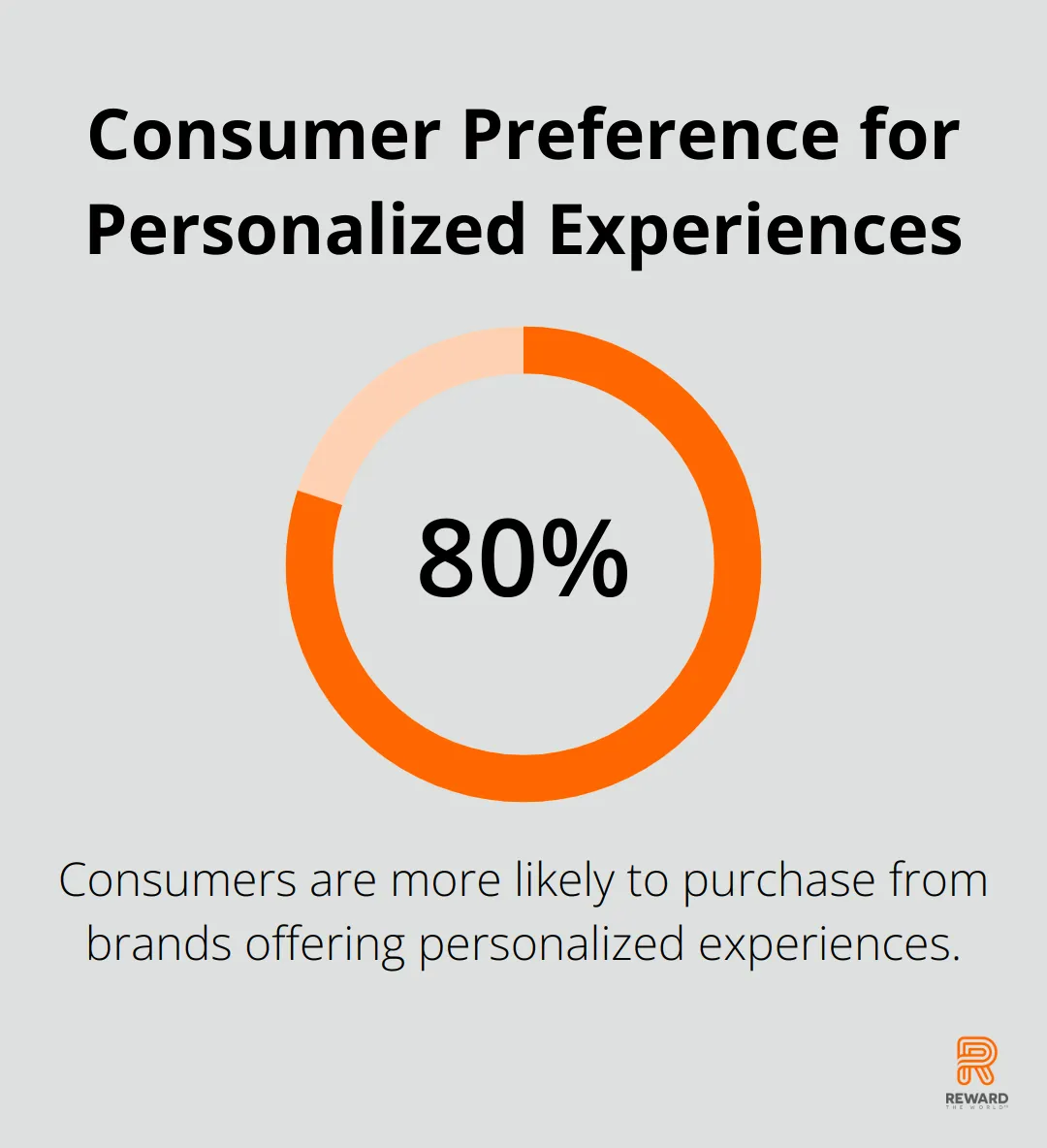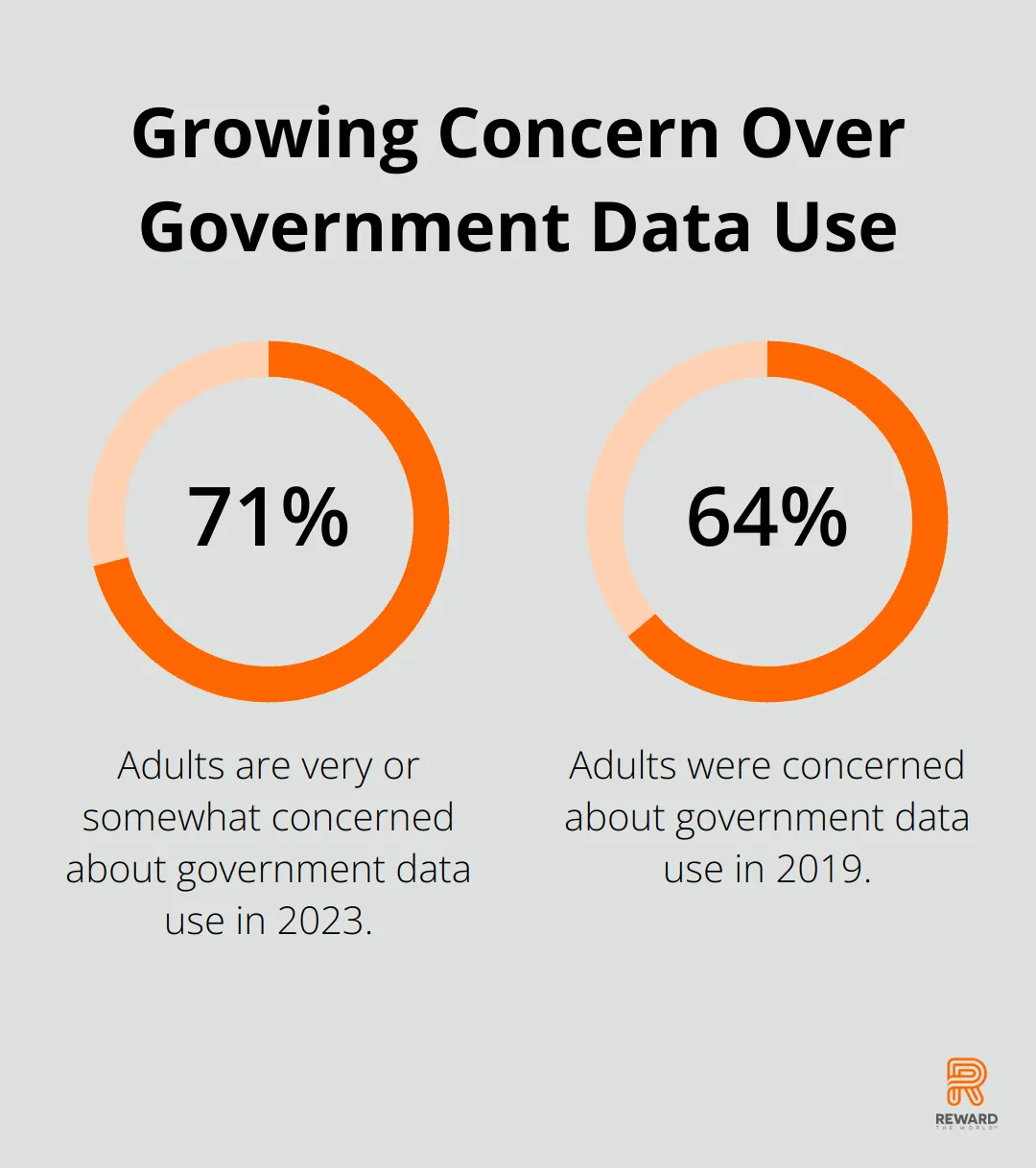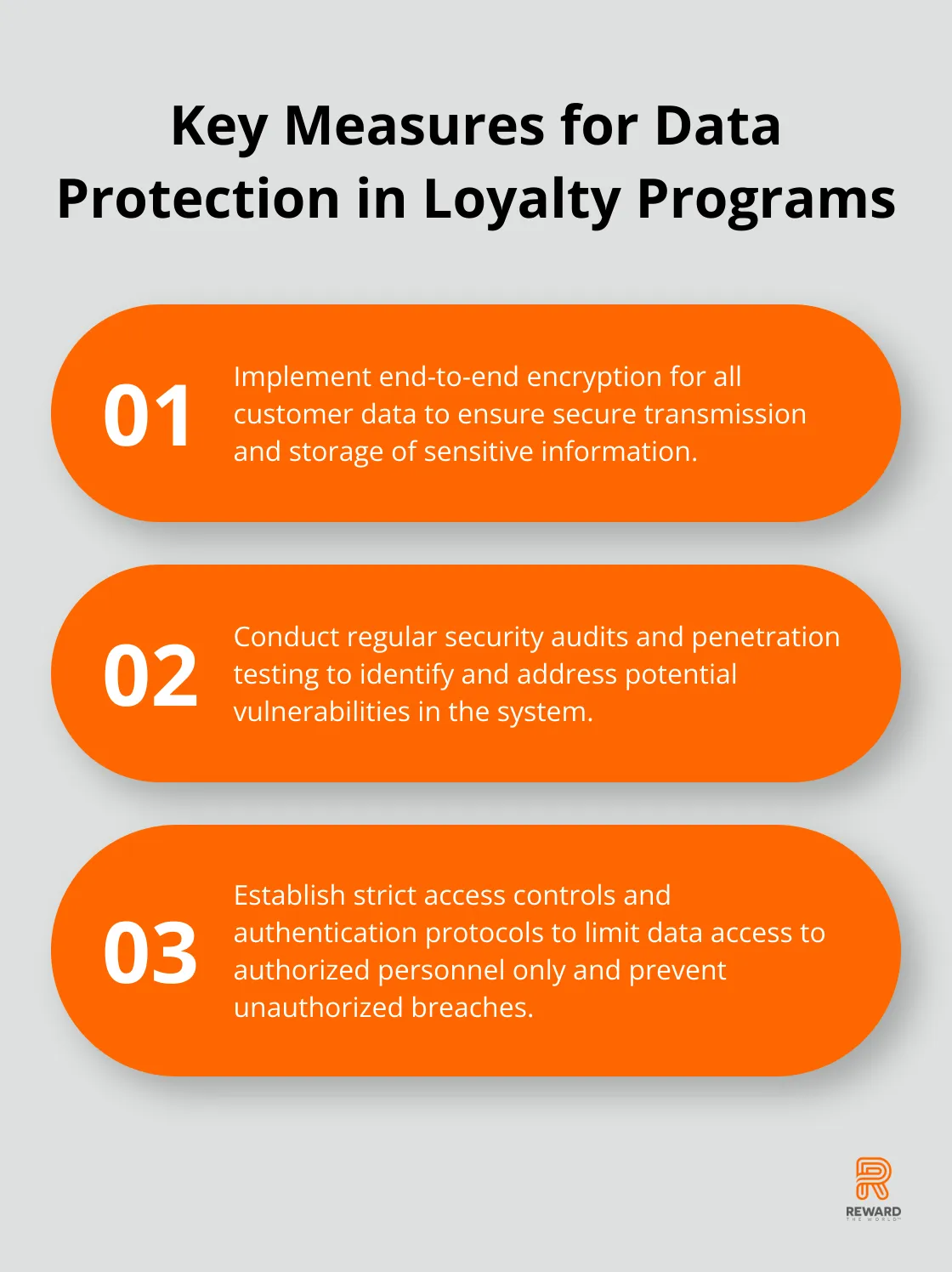
AI is revolutionizing loyalty programs, offering personalized experiences and driving customer engagement to new heights. However, this technological leap brings with it a host of ethical challenges that demand our attention.
At Reward the World, we’re committed to exploring the complex landscape of AI ethics in loyalty programs. This post delves into the benefits, risks, and essential considerations for responsibly implementing AI in customer loyalty strategies.
How AI Transforms Loyalty Programs
AI revolutionizes loyalty programs, turning simple point-collection systems into sophisticated engagement engines. This transformation brings unprecedented opportunities for personalization, prediction, and optimization.
Personalization at Scale
AI enables hyper-personalization of rewards and offers. A study by Epsilon reveals that 80% of consumers are more likely to purchase from a brand that offers personalized experiences. This level of customization was previously unattainable at scale.

Sephora’s Beauty Insider program exemplifies this trend. It uses AI to analyze purchase history and browsing behavior, then recommends products and tailors rewards. The result? A 200% increase in conversions compared to non-personalized campaigns.
Predictive Analytics for Churn Prevention
AI algorithms predict customer churn with remarkable accuracy. AI-powered predictive analytics can help identify at-risk customers early and implement targeted retention strategies to keep them engaged.
Many loyalty platforms incorporate similar predictive models. Companies using these advanced systems have seen up to a 30% reduction in churn rates by proactively engaging at-risk customers with targeted incentives.
Real-time Engagement Optimization
AI allows for real-time adjustment of loyalty program parameters. Starbucks’ rewards app (another potential candidate for Reward the World’s solutions) uses AI to modify offers based on time of day, location, and individual preferences. This approach has led to a 6% increase in store visits and an 8% rise in revenue.
Similar systems implemented by various companies have resulted in an average 15% boost in program engagement rates.
The Future of AI in Loyalty
As AI continues to evolve, its potential to create more valuable, engaging, and effective loyalty strategies grows. From chatbots providing instant customer service to advanced sentiment analysis for better understanding customer needs, the possibilities seem endless.
However, with great power comes great responsibility. As we explore the benefits of AI in loyalty programs, we must also address the ethical concerns that arise from this technological advancement. Let’s examine the potential pitfalls and challenges that companies face when implementing AI-driven loyalty strategies.
The Dark Side of AI in Loyalty Programs
AI-driven loyalty programs offer unprecedented personalization and engagement, but they also bring significant ethical challenges. We at Reward the World have observed these issues firsthand and believe addressing them is essential for long-term success.
The Privacy Paradox
Data privacy is a major concern in AI-powered loyalty programs. A 2023 study by the Pew Research Center found that 71% of adults are very or somewhat concerned about how the government uses the data it collects about them, up from 64% in 2019. Yet, many still participate in loyalty programs, creating a privacy paradox.

This paradox puts businesses in a tricky position. They need data to provide personalized experiences, but must also respect privacy concerns. Companies that fail to strike this balance risk severe consequences. For instance, in 2022, a major retailer faced a $5 million fine for mishandling customer data in their loyalty program.
To address this, companies should implement strict data protection measures. This includes data encryption, regular security audits, and clear opt-in/opt-out mechanisms for customers. It’s also important to be transparent about data usage. Companies should explain in simple terms how they collect, store, and use customer data.
The Bias Blindspot
Algorithmic bias is another significant issue in AI-driven loyalty programs. These biases can lead to unfair treatment of certain customer groups, damaging brand reputation and customer trust.
A 2024 study by MIT researchers explored the use of AI in quantifying proficiency through a process known as skills inference. This highlights the importance of understanding how AI systems make decisions in various contexts, including loyalty programs.
To combat potential biases, companies should conduct regular audits of AI algorithms. They should use diverse datasets when training AI models and involve diverse teams in their development. Tools like IBM’s AI Fairness 360 can help identify and mitigate bias in AI systems.
The Black Box Problem
The lack of transparency in AI decision-making processes is a growing concern. When customers don’t understand how decisions are made, it erodes trust in the loyalty program.
Deloitte’s research suggests that brands need to evolve their loyalty programs to keep up with changing customer loyalty trends and build stronger connections with consumers. This includes addressing the “black box” problem that can lead to customer frustration and program abandonment.
To address this, companies should implement explainable AI techniques. They should provide clear, simple explanations for how they calculate rewards and make decisions. Companies should consider using visualization tools to make complex AI processes more understandable to customers.
As we navigate these ethical challenges, it’s clear that the future of AI in loyalty programs will depend on how well companies balance innovation with responsibility. In the next section, we’ll explore strategies for implementing ethical AI practices in loyalty programs.
Building Ethical AI Loyalty Programs
At Reward the World, we’ve observed the challenges of balancing innovation and ethics in AI-driven loyalty programs. Our experience shows that ethical AI implementation is not just a moral imperative but a business necessity. Here’s how companies can create responsible AI loyalty programs that respect customer privacy and build trust.
Create a Clear AI Ethics Framework
Developing a comprehensive AI ethics framework is essential. This framework should outline principles for data collection, usage, and AI decision-making. The IEEE Global Initiative on Ethics of Autonomous and Intelligent Systems provides guidelines that companies can adapt for their loyalty programs.
A robust framework should address:
- Data minimization: Collect only essential data for program functionality.
- Fairness: Ensure AI decisions don’t discriminate against any customer groups.
- Transparency: Clearly communicate how AI is used in the program.
- Accountability: Establish processes for addressing AI-related issues or complaints.
Companies that implement such frameworks can help address concerns around trust in AI technology.
Implement Rigorous Data Protection
Data breaches can devastate loyalty programs. In 2023, a major retailer’s loyalty program breach affected 50 million customers, resulting in a $200 million loss. To prevent such disasters, companies must prioritize data protection.
Key measures include:

Ensure Human Oversight and Intervention
While AI can significantly enhance loyalty programs, human oversight remains important. A May 2024 Forrester survey revealed that 67% of AI decision-makers plan to make real-time decisions without extensive human intervention.
To maintain this balance:
- Establish an AI ethics committee to review AI implementations.
- Provide clear escalation paths for customers to reach human representatives.
- Regularly review AI decisions and their impacts on customer satisfaction.
- Train staff to understand and explain AI-driven decisions to customers.
Foster Transparency and Trust
Transparency builds trust in AI-driven loyalty programs. Companies should clearly communicate how they use AI and what benefits it brings to customers. This openness can lead to increased participation and loyalty.
Try to:
- Use simple language to explain AI processes (avoid technical jargon).
- Provide easy-to-understand visualizations of how AI impacts rewards.
- Offer customers control over their data and AI-driven personalization.
- Regularly update customers on AI improvements and their benefits.
Continuous Improvement and Adaptation
The field of AI ethics evolves rapidly. Companies must stay informed about new developments and adapt their practices accordingly. This commitment to improvement demonstrates a company’s dedication to ethical AI use.
Steps to take:
- Conduct regular ethical audits of AI systems.
- Stay informed about new AI regulations and best practices.
- Engage with industry peers and ethics experts for insights.
- Implement feedback loops to incorporate customer concerns into AI development.
Final Thoughts
Responsible AI adoption in loyalty programs shapes the future of customer engagement. Companies that prioritize AI ethics build stronger relationships, enhance brand reputation, and mitigate risks. The implementation of robust data protection, algorithmic fairness, and transparency allows businesses to harness AI’s power while respecting customer rights.
AI ethics will play a central role in future customer engagement strategies. As consumers demand greater transparency, businesses must implement ethical AI practices that respect individual rights while delivering personalized experiences. The success of AI-powered loyalty programs depends on their ability to balance innovation with ethical considerations.
We at Reward the World help businesses navigate this complex landscape. Our global incentives platform offers a turnkey solution for companies looking to enhance customer loyalty while adhering to high ethical standards. With our analytics and integration capabilities, we empower businesses to create responsible, AI-driven loyalty programs that drive engagement and build lasting customer relationships.
